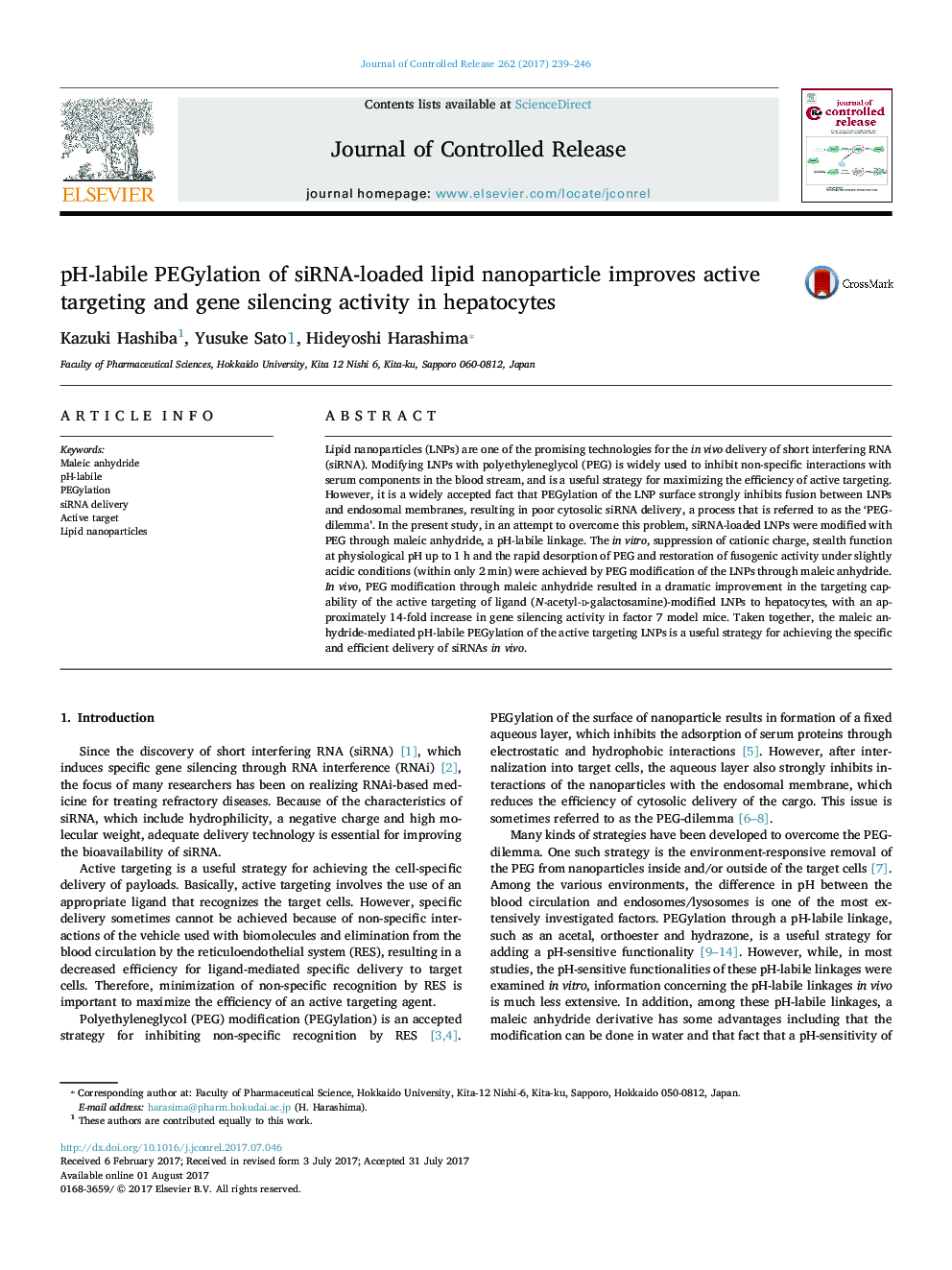| Article ID | Journal | Published Year | Pages | File Type |
|---|---|---|---|---|
| 5433478 | Journal of Controlled Release | 2017 | 8 Pages |
Lipid nanoparticles (LNPs) are one of the promising technologies for the in vivo delivery of short interfering RNA (siRNA). Modifying LNPs with polyethyleneglycol (PEG) is widely used to inhibit non-specific interactions with serum components in the blood stream, and is a useful strategy for maximizing the efficiency of active targeting. However, it is a widely accepted fact that PEGylation of the LNP surface strongly inhibits fusion between LNPs and endosomal membranes, resulting in poor cytosolic siRNA delivery, a process that is referred to as the 'PEG-dilemma'. In the present study, in an attempt to overcome this problem, siRNA-loaded LNPs were modified with PEG through maleic anhydride, a pH-labile linkage. The in vitro, suppression of cationic charge, stealth function at physiological pH up to 1Â h and the rapid desorption of PEG and restoration of fusogenic activity under slightly acidic conditions (within only 2Â min) were achieved by PEG modification of the LNPs through maleic anhydride. In vivo, PEG modification through maleic anhydride resulted in a dramatic improvement in the targeting capability of the active targeting of ligand (N-acetyl-d-galactosamine)-modified LNPs to hepatocytes, with an approximately 14-fold increase in gene silencing activity in factor 7 model mice. Taken together, the maleic anhydride-mediated pH-labile PEGylation of the active targeting LNPs is a useful strategy for achieving the specific and efficient delivery of siRNAs in vivo.
Graphical abstractDownload high-res image (131KB)Download full-size image
